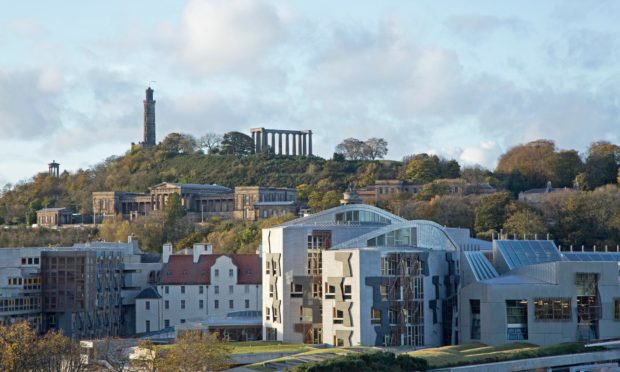Two laws backed unanimously at the Scottish Parliament could lead to “unparalleled” powers to strike out Westminster’s ability to legislate, the country’s highest court has been told.
The claim was made at the Supreme Court on Monday about the impact of Bills including one incorporating the UN Convention on the Rights of the Child.
The UK Government’s initial objection in March sparked a row about the limits of devolution and was branded “jaw dropping” by First Minister Nicola Sturgeon at the time.
Deputy First Minister John Swinney said the Scottish Government would “vigorously resist” the legal challenge.
However, the UK Government’s Scottish Secretary, Alister Jack, said the complaint is about giving Scottish courts extensive powers to scrutinise and interpret laws passed by the sovereign UK Parliament.
A second Bill on the European Charter of Local Self-Government is also being challenged at the Supreme Court.
‘Unparalleled powers’
James Mure QC, acting for top Scottish law officer the Lord Advocate, said the UN Bill will further children’s rights.
“The true purpose of placing the duty on public authorities is to protect children’s rights and to further the fulfilment of those rights in Scotland,” he argued.
Sir James Eadie QC, for the UK Government, told the court the case concerned potential powers to “strike down, rewrite or declare incompatible” provisions of the acts of the “sovereign UK Parliament”.
In written arguments, Sir James said: “Both Bills, in slightly different ways, purport to bestow upon the Scottish courts extensive and, in part, unparalleled powers to interpret and to scrutinise the legality of primary legislation passed by the sovereign UK Parliament at Westminster.”
The Supreme Court heard the UK ratified both UN treaties in the 1990s.
However, neither of the Bills can officially become law in Scotland until after the outcome of the legal challenge.
The Welsh Government is also involved in the case. The heading is in front of five Supreme Court justices and is expected to end on Tuesday with judgement at a later date.
